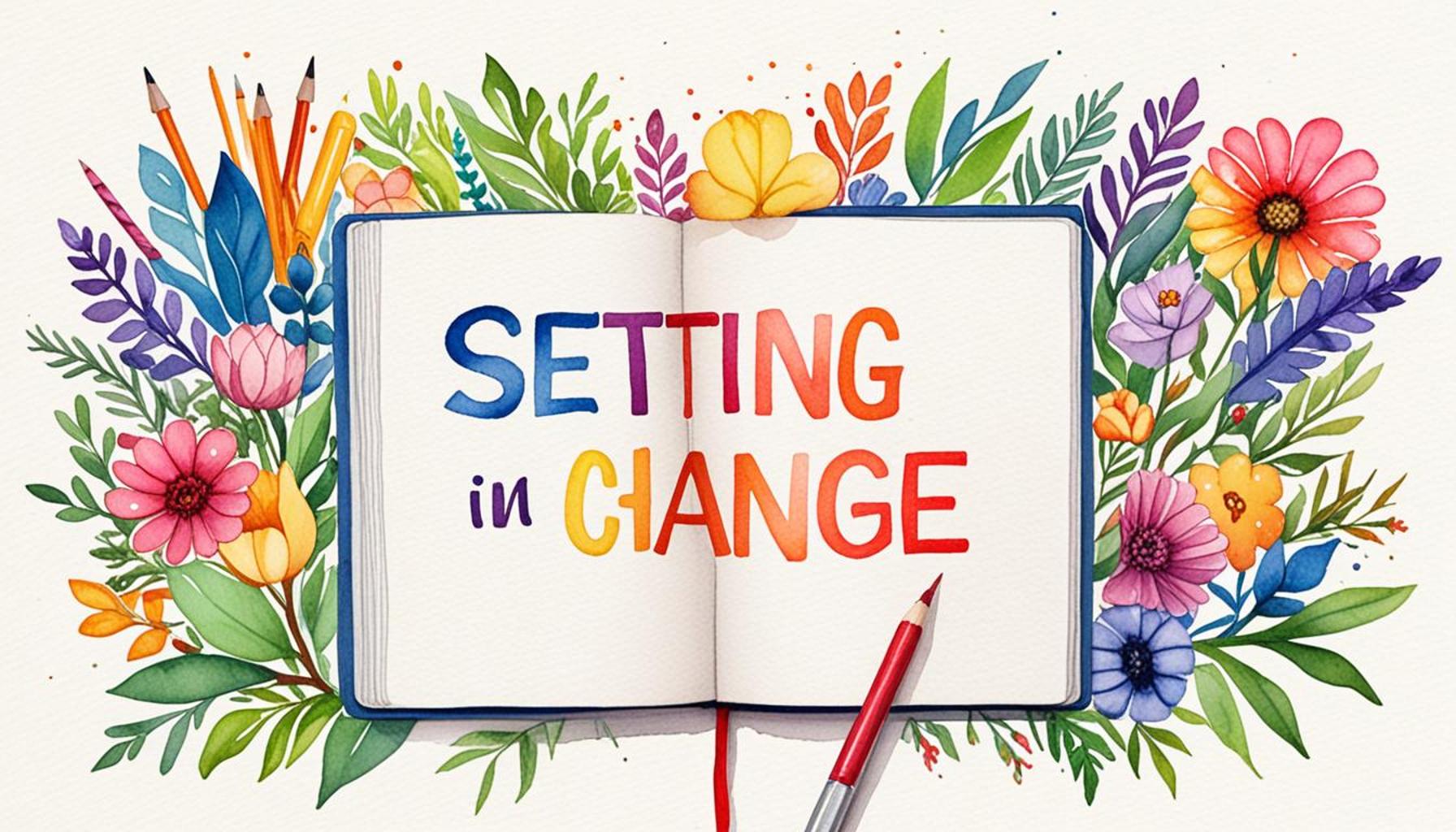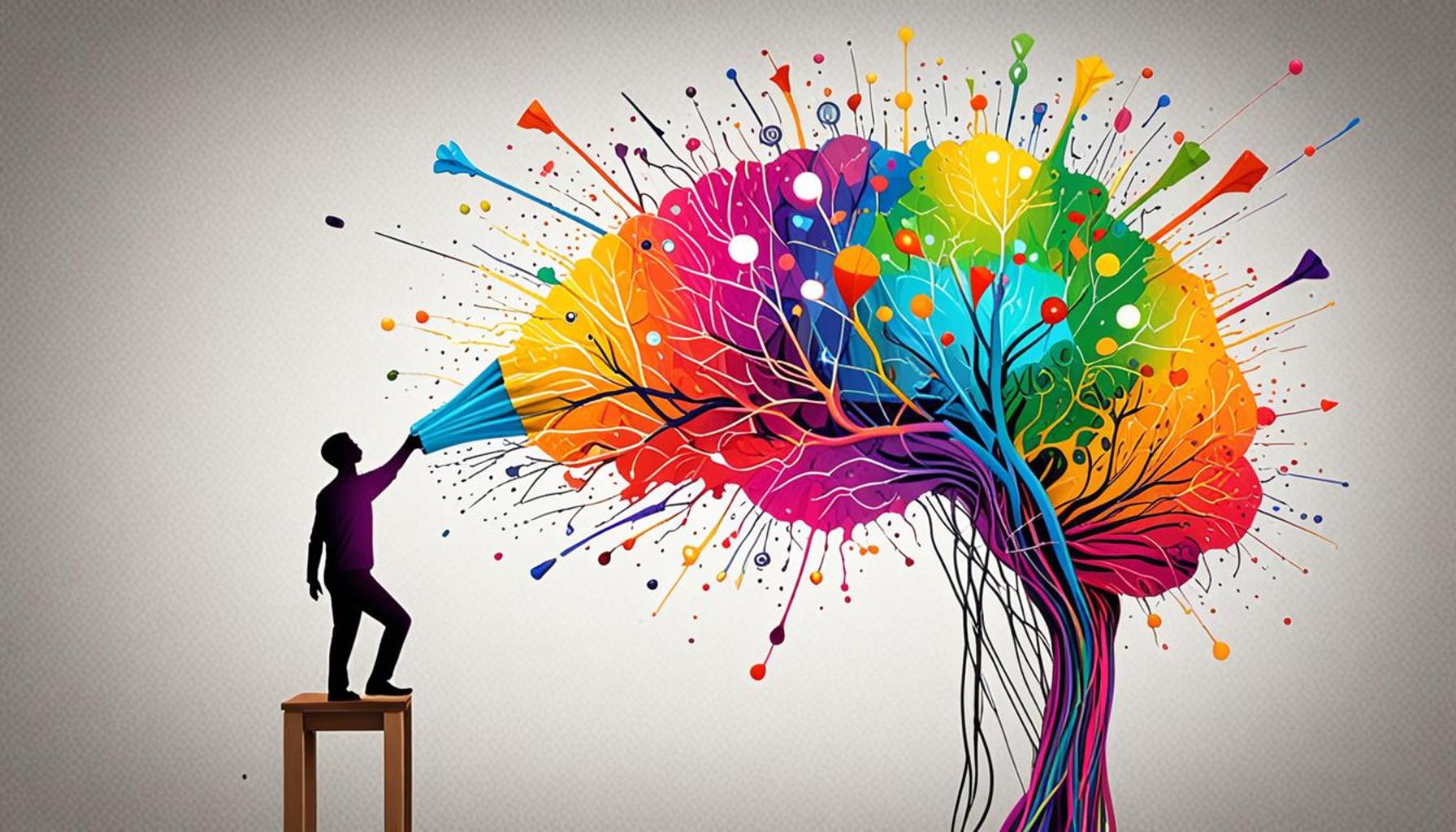Setting Goals in Times of Change: How to Adapt Objectives to Foster a Resilient Mindset

The Importance of a Resilient Mindset
In a world characterized by rapid transformation, the capacity to adjust one’s goals effectively is paramount. Both individuals and organizations are confronted with unprecedented challenges and uncertainties, necessitating the cultivation of a resilient mindset. This adaptability is especially critical in environments where stability may appear elusive, such as during socio-economic fluctuations or public health crises.
For instance, the COVID-19 pandemic offered a stark reminder of how quickly circumstances can shift, forcing many to rethink their strategies and objectives. Local businesses, including bustling markets in Lagos, demonstrated resilience by pivoting to online platforms and delivery services to sustain their operations. This adaptability not only helped them survive during trying times but also paved the way for innovative solutions that could benefit them in the long run.
Flexibility: The Key to Innovation
Flexibility in goal-setting can unlock doors to innovative approaches that may otherwise be overlooked. In Nigeria, where many face economic constraints, the ability to adapt is often the difference between success and failure. Entrepreneurs have showcased remarkable flexibility; for example, fashion designers have shifted from producing traditional clothing to creating face masks and protective gear, contributing to community needs while maintaining income streams during difficult times. This showcases how adaptability not only caters to changing market demands but also fosters innovation.
SMART Goals: A Structured Approach
Another pivotal aspect of navigating change is the utilization of the SMART framework—Specific, Measurable, Achievable, Relevant, and Time-bound goals. This structured approach provides clarity and focus amid chaos. For example, a student looking to improve academic performance in Nigerian universities may set a SMART goal to increase their grade point average by 0.5 within a semester by establishing a study schedule and dedicating specific hours for tutoring. This clarity not only helps them stay motivated but also aligns their efforts with tangible outcomes.
The Role of Self-Reflection
Self-reflection is an essential component of personal growth and goal adaptation. Regularly assessing one’s objectives allows individuals to understand their evolving needs and challenges. In communities across Nigeria, individuals can benefit from engaging in self-reflection practices, such as journaling or seeking feedback from peers. This self-assessment might reveal insights into new opportunities or necessitate adjustments in existing plans, ensuring that their goals remain relevant and achievable.

In conclusion, with a resilient mindset, individuals can redefine their ambitions in the face of adversity. By cultivating flexibility, employing the SMART framework, and embracing self-reflection, one can nurture a stronger and more adaptive mindset. As we navigate life’s unpredictable waters, these strategies will not only help in overcoming immediate challenges but also prepare us for future uncertainties. The journey of goal redefinition is ongoing and transformative, and by implementing these actionable steps, we can empower ourselves and our communities to thrive in a world of change.
SEE ALSO: Click here to read another article
Embracing Change Through Goal Adjustment
In times of disruption, the ability to adapt objectives is a crucial skill that can significantly impact one’s personal and professional growth. As the landscape of work and life evolves, it becomes essential to remain vigilant and responsive to change. This entails re-evaluating established goals and ensuring they align with current circumstances. In Nigeria, with its dynamic economic conditions and cultural shifts, individuals need to embrace a proactive approach to goal-setting to foster resilience.
One effective strategy for adapting objectives is to perform a thorough environmental assessment. This involves analyzing both external factors, such as market trends, and internal factors, like personal strengths and weaknesses. A recent survey revealed that 70% of Nigerian entrepreneurs still find immense potential in their sectors despite facing challenges from competition and regulatory changes. This positivity underscores the importance of identifying opportunities during turbulent times through a well-rounded assessment.
Strategies for Effective Goal Adjustment
To successfully adapt goals in an unstable environment, consider implementing the following strategies:
- Prioritize Core Values: Reflect on what matters most to you personally and professionally. Defining these core values serves as a compass to guide your decisions and goals.
- Set Short-Term Milestones: Break down larger objectives into smaller, manageable milestones. This allows for iterative progress and boosts motivation as goals are achieved incrementally.
- Stay Informed: Regularly seek information relevant to your field or interests. Staying updated with news, economic forecasts, and industry innovations can provide vital insights for adjusting your goals effectively.
- Engage with Your Community: Increased interaction with people facing similar challenges can inspire creativity and collaboration. Networking can lead to support systems where members share resources and strategies for overcoming obstacles.
For instance, numerous small-scale farmers in Nigeria have adjusted their farming goals by integrating sustainable agricultural practices. By focusing on shorter planting cycles and diversifying crop varieties, they not only ensure food security for local communities but also enhance their income potential. This adaptation shapes a resilient business model that withstands unpredictable environmental and market shifts.
The Power of Continuous Learning
Fostering a resilient mindset also involves a commitment to continuous learning. In a world where skills can quickly become obsolete, embracing a growth mentality is vital for both personal and professional development. Engaging in online courses, workshops, or collaborative projects encourages individuals to acquire new competencies that can reshape their goals. For instance, technological advancements in Nigeria are compelling business owners to learn about digital marketing and e-commerce strategies, thus transforming their approach to reaching customers.
By focusing on continual skill enhancement and knowledge acquisition, individuals position themselves not only to meet current challenges but also to seize future opportunities. Through strategic adjustment of goals, informed by reflection, assessment, and learning, a resilient mindset can be cultivated—preparing everyone to thrive amid uncertainty.
Setting Effective Goals During Uncertain Times
In the realm of goal setting, adaptability is now more crucial than ever. Achieving objectives during periods of change requires a thorough understanding of one’s environment and the ability to pivot plans in response to unforeseen challenges. The key to fostering a resilient mindset lies in establishing goals that are not only realistic but also flexible.
Creating SMART Goals
Utilizing the SMART framework – Specific, Measurable, Achievable, Relevant, and Time-bound – can enhance your ability to set clear and practical objectives. For instance, rather than setting a vague goal such as “improve productivity,” an individual might aim to “increase team output by 20% within the next quarter.” This specificity can create a focused approach that is crucial during times of flux.
Emphasizing Short-Term Wins
In uncertain times, breaking down larger goals into short-term objectives can ensure that you stay motivated. Small, achievable milestones foster a sense of progress and accomplishment, contributing significantly to a positive mindset. Celebrating these wins not only boosts morale but also encourages resilience against future setbacks. Consider revisiting and adjusting your goals regularly to reflect changing circumstances, which can help maintain motivation even amidst turmoil.
Leveraging Support Systems
A strong support system can profoundly impact one’s ability to adapt and remain focused on objectives. Surrounding yourself with individuals or groups who have similar aspirations can provide essential encouragement and accountability. Collaboration opens the door to new insights and solutions, often leading to the re-evaluation of personal goals, aligning them more closely with the current environment.
Embracing Continuous Learning
Adapting goals requires a mindset of lifelong learning. By committing to ongoing education, whether through formal training or self-directed learning, individuals can update their skills and knowledge base to meet new challenges. This commitment not only prepares you for immediate changes but also equips you with the resources necessary for future uncertainties.
| Category | Key Features |
|---|---|
| Adaptability | Ability to adjust goals in response to changing circumstances. |
| Support Systems | Network of individuals providing motivation and accountability. |
| Continuous Learning | Commitment to ongoing education to enhance skills and adaptability. |
These foundational practices in goal setting not only foster resilience but also pave the way for future success, ensuring that we are prepared to face not just the challenges of the present, but those of tomorrow as well.
SEE ALSO: Click here to read another article
The Role of Mindfulness in Goal Setting
Incorporating mindfulness into the goal-setting process can greatly enhance one’s ability to navigate change. By cultivating a present-focused awareness, individuals can better understand their emotional and psychological responses to shifting circumstances. This holistic approach not only encourages emotional intelligence but also enables clearer decision-making, allowing for a more effective alignment of goals with one’s evolving reality. Studies show that individuals who practice mindfulness report higher levels of well-being and resilience, which are crucial during periods of transformation.
For instance, a recent survey conducted among Nigerian youths revealed that engaging in mindfulness techniques, such as meditation and journaling, significantly improved their academic and professional outlook. These practices fostered a greater sense of clarity, empowering individuals to reassess their goals against the backdrop of personal and societal changes. By integrating mindfulness, they learned to pivot their career aspirations in accordance with real-time challenges, such as the impact of global events on local job markets.
Utilizing Technology for Goal Tracking
In today’s digital age, technology offers numerous tools that facilitate effective goal-setting and adjustment. Utilizing goal-tracking applications can streamline the process of assessing one’s progress and recalibrating objectives as needed. Tools such as Trello, Asana, or even general productivity apps can assist individuals in clearly defining tasks, setting deadlines, and reflecting on achievements. This approach leads to enhanced accountability and a structured pathway to success.
Moreover, incorporating data analytics can provide valuable insights into performance trends. For instance, Nigerian startups focusing on tracking their customer engagement metrics have adapted their sales goals based on consumer behavior data. By analyzing shifts in demand patterns, these businesses could redefine their objectives to better align with market needs, thereby reinforcing their market position and resilience against economic changes.
Finding Support Through Mentorship
An often-overlooked aspect of setting adaptable objectives is the importance of mentorship. Establishing connections with experienced individuals who can provide guidance can be immensely beneficial. Mentors can aid in refining goals and help individuals recognize emerging opportunities in uncertain times. They often possess insights born from experience, enabling mentees to avoid potential pitfalls and navigate challenges more effectively.
In Nigeria, several mentorship programs have blossomed, aligning young professionals with established leaders across diverse industries. Such initiatives empower mentees to rethink their aspirations in light of the socio-economic climate while gaining the vantage point needed to pivot goals when necessary. A classic example can be drawn from successful entrepreneurs who frequently share their stories of overcoming adversity, from which many young Nigerians can draw inspiration when revisiting their professional objectives.
Ultimately, by embracing mindfulness, leveraging technology, and seeking mentorship, individuals can effectively redefine their goals. As the landscape of their environments shifts, those who remain open to adaptation and personal growth will find themselves not only surviving but thriving in the face of change. The active application of these strategies fosters a resilient mindset, preparing individuals to tackle future uncertainties head-on.
CHECK OUT: Click here to explore more
Conclusion: Embracing Adaptability for a Resilient Future
In a world that is constantly evolving, the ability to adapt goals in times of change has never been more crucial. The strategies outlined in this article—through the lens of mindfulness, the utilization of technology, and the invaluable support of mentorship—offer a comprehensive framework for individuals seeking to foster a resilient mindset. By remaining attuned to personal and external changes, individuals can recalibrate their objectives, ensuring that they remain relevant and achievable.
The intersection of mindfulness practices and technological tools not only enhances self-awareness but also ensures that goal tracking is efficient. The insight from data analytics empowers individuals and organizations alike to redefine objectives based on the current landscape, thus avoiding stagnation. Furthermore, mentorship provides a vital connection to wisdom and experience, allowing one to navigate uncertainties more effectively.
As we face unpredictable challenges—be it from economic fluctuations, societal shifts, or global events—it is essential to remember that resilience is rooted in flexibility. Embracing change rather than resisting it can lead to greater opportunities for growth and success. Nigerian youths, for example, can draw from successful adaptations in local industries, highlighting that individuals who pivot their goals thoughtfully can thrive, even in adversity.
Ultimately, by implementing these adaptive goal-setting strategies, every individual can cultivate a mindset equipped to tackle future uncertainties with confidence, thus laying the groundwork for a resilient future.



